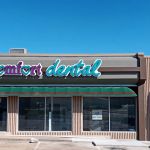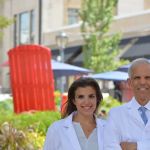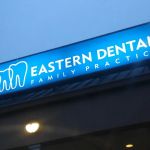How I Keep My Teeth Clean Without Overdoing It
For years, I thought the more I brushed my teeth, the better. I would often brush after every meal, scrub hard to make sure my teeth were squeaky clean, and even use toothpaste that promised extra whitening. However, over time, I started to notice some problems: my gums became sensitive, and my enamel started to wear down. That’s when I realized that keeping my teeth clean doesn’t mean overdoing it. In fact, finding a balanced approach to oral hygiene is the key to maintaining a healthy smile. In this article, I’ll share the tips I’ve learned over the years on how to keep your teeth clean without causing harm or overdoing it.
1. Brushing: How Often and How Hard?
The first thing I learned about keeping my teeth clean without overdoing it was the importance of not brushing too often or too hard. While brushing is crucial, it's also possible to damage your gums and enamel if you go overboard.
1.1. Brushing Twice a Day is Enough
At first, I thought that brushing my teeth after every meal was necessary. However, I soon realized that brushing more than twice a day can be excessive, especially if you’re using a toothbrush with hard bristles or brushing too aggressively. My dentist advised me to brush only twice a day—once in the morning and once before bed. This frequency is generally sufficient to remove plaque and prevent tooth decay without risking damage to my gums or enamel.
1.2. Use a Soft-Bristled Toothbrush
Using a hard-bristled toothbrush was something I didn’t even realize was an issue until I switched to a soft-bristled one. When I used a hard-bristled brush, I was unknowingly causing my gums to recede and my enamel to wear down. Once I switched to a soft-bristled brush, I noticed a significant difference. It was gentle on my gums while still effective at cleaning my teeth. I also learned to use gentle circular motions rather than harsh scrubbing back and forth.
1.3. Don’t Brush Immediately After Eating
Another important lesson I learned is not to brush my teeth immediately after eating, especially if I’ve consumed acidic foods or drinks, like citrus fruits or soda. The enamel on my teeth softens after exposure to acid, and brushing too soon can damage it. I started waiting at least 30 minutes after eating before brushing to ensure that my enamel wasn’t vulnerable.
2. Flossing: The Key to Clean Spaces Between Teeth
Flossing has always been an important part of my oral hygiene routine, but I learned that many people tend to neglect it or don’t use it properly. I used to brush my teeth thoroughly and skip flossing, thinking it wasn’t necessary. But after learning more about how plaque and food particles can get stuck between teeth, I understood why flossing is so important.
2.1. Floss Daily, But Don’t Overdo It
My dentist recommended flossing once a day, which is enough to remove plaque from between my teeth and along the gumline. At first, I was tempted to floss multiple times a day, thinking it would give me cleaner teeth. However, I soon realized that excessive flossing, especially if done too aggressively, could irritate my gums and cause them to bleed. Now, I make sure to floss gently once a day, usually before bed, to help keep my gums healthy and clean.
2.2. Use the Right Technique
I also learned that the technique matters. Instead of snapping the floss between my teeth, I now gently slide it up and down the sides of my teeth in a C-shape. This technique helps remove plaque without damaging my gums. Using dental floss that is easy to handle and fits comfortably between my teeth has made flossing much easier and more effective.
3. Mouthwash: An Effective Complement
While brushing and flossing are essential, I found that incorporating mouthwash into my routine helped freshen my breath and keep my mouth clean without overdoing it. I used to think that mouthwash was only for freshening my breath, but I soon learned that it plays a vital role in killing bacteria and preventing plaque buildup.
3.1. Choose Alcohol-Free Mouthwash
When I first started using mouthwash, I didn’t realize that some mouthwashes contain alcohol, which can dry out my mouth. This made my dry mouth even worse. After switching to an alcohol-free mouthwash, I noticed a big improvement. It helped kill bacteria, freshen my breath, and kept my mouth moist. I also made sure to use a mouthwash that had fluoride to help strengthen my enamel.
3.2. Use Mouthwash as a Complement, Not a Substitute
While mouthwash is an excellent addition to my oral hygiene routine, I learned that it shouldn’t be a substitute for brushing or flossing. It works best when used after brushing and flossing, helping to reach areas that may be missed. I now use mouthwash once a day, usually before bed, to ensure my mouth is clean and my breath is fresh.
4. Hydration: Keep Your Mouth Moist
Hydration is an often-overlooked factor when it comes to oral health. After learning about the importance of staying hydrated, I realized that drinking plenty of water throughout the day not only helps keep my body healthy but also keeps my mouth moist. Saliva is crucial for cleaning my teeth and preventing cavities, so staying hydrated helps promote healthy saliva production.
4.1. Drink Water Throughout the Day
I now carry a water bottle with me everywhere I go, sipping water regularly to keep my mouth moist and my saliva flowing. This helps prevent dry mouth, which can contribute to tooth decay and bad breath. Drinking water also helps wash away food particles and bacteria, further protecting my teeth.
4.2. Avoid Sugary Drinks
While I still enjoy the occasional cup of coffee or tea, I make sure to limit sugary drinks like soda, which can contribute to tooth decay. Sugary drinks feed the bacteria in my mouth, leading to plaque buildup and potential cavities. By drinking more water and avoiding sugary drinks, I’ve helped reduce my risk of cavities while maintaining a healthy mouth.
5. Regular Dental Checkups
Even with my diligent oral care routine, I know that regular checkups with my dentist are key to keeping my teeth clean and healthy. My dentist can spot potential issues before they become bigger problems, such as cavities, gum disease, or early signs of tooth decay. I make it a priority to schedule a cleaning and exam every six months to maintain my oral health.
5.1. Professional Cleanings
Professional cleanings are more thorough than what I can do at home. My dental hygienist removes tartar buildup that can’t be removed with brushing and flossing alone. These cleanings help keep my teeth healthy and free from plaque, giving me peace of mind that I’m doing everything I can to maintain a beautiful smile.







 Comfort Dental South Independence – Your Trusted Dentist in Independence4.0 (334 review)
Comfort Dental South Independence – Your Trusted Dentist in Independence4.0 (334 review) Greco Orthodontics5.0 (98 review)
Greco Orthodontics5.0 (98 review) Saw Mill Dental of Yonkers4.0 (744 review)
Saw Mill Dental of Yonkers4.0 (744 review) Dr. Fred A. Puccio5.0 (2 review)
Dr. Fred A. Puccio5.0 (2 review) River City Orthodontics: Glen Allen5.0 (96 review)
River City Orthodontics: Glen Allen5.0 (96 review) Eastern Dental4.0 (897 review)
Eastern Dental4.0 (897 review) The Importance of Oral Health Education During Pregnancy for a Healthy Pregnancy
The Importance of Oral Health Education During Pregnancy for a Healthy Pregnancy Best Tips for Brushing Your Teeth Properly for Healthy Gums: Essential Techniques for Oral Health
Best Tips for Brushing Your Teeth Properly for Healthy Gums: Essential Techniques for Oral Health Why Skipping Dental Checkups Can Lead to Bigger Oral Health Problems
Why Skipping Dental Checkups Can Lead to Bigger Oral Health Problems Advantages of Porcelain Dental Restorations
Advantages of Porcelain Dental Restorations How Can Diabetes Cause Tooth and Gum Problems? Preventing and Managing Oral Health Issues
How Can Diabetes Cause Tooth and Gum Problems? Preventing and Managing Oral Health Issues Healthy Habits for Promoting Good Oral Health and Hygiene: Tips for a Healthy Smile
Healthy Habits for Promoting Good Oral Health and Hygiene: Tips for a Healthy Smile